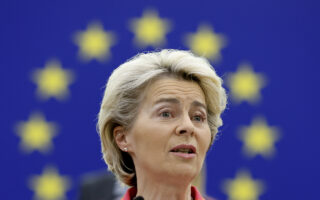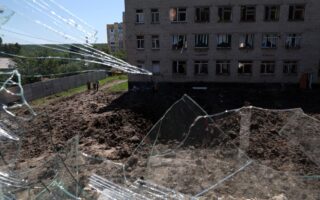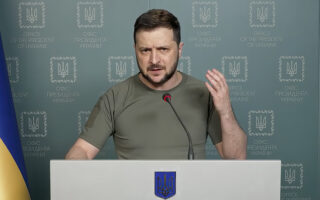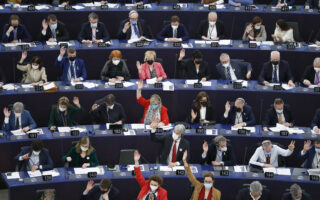Greece-Russia ties lack depth
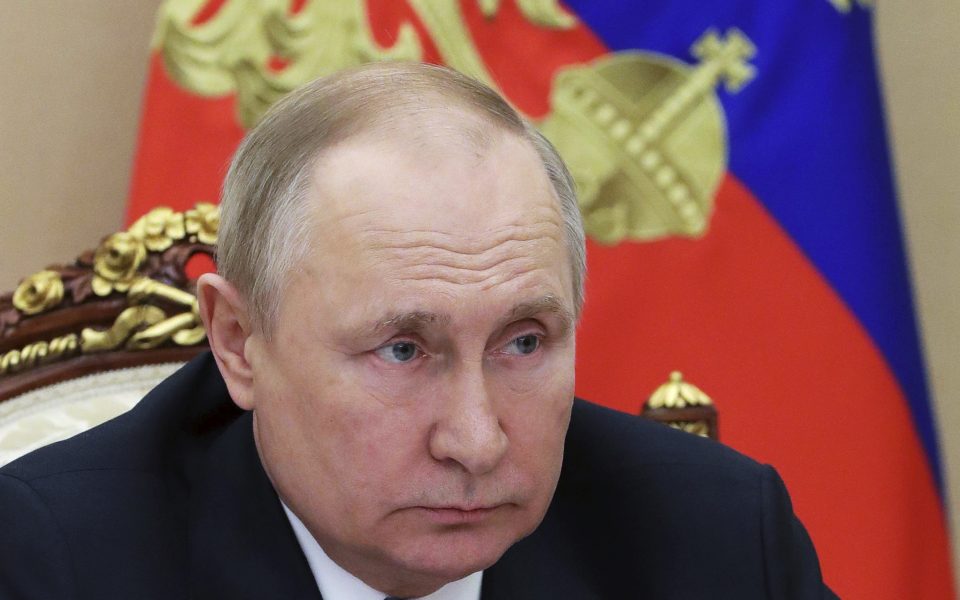
There has been a marked strain in Greek-Russian relations ever since Athens signed the Prespes Agreement with North Macedonia in 2018. In the meantime, Russia came to terms with the fact that Greece belongs in the Western camp since the 2014 Crimean War and adjusted accordingly. This does not mean that Moscow has not tried to gain influence among a section of the Greek political elite at times, but I am not at all certain that it has ever seriously tried to get Greece to drift off the Western path.
Nevertheless, Moscow had regarded a relationship with Athens as useful, despite Greece’s induction into NATO in 1952 and into the European family 28 years later, because it considered it a friendly power that may not have had an instrumental role in NATO and EU decision making but was among the member states that wanted a working relationship with Russia. Moreover, Greek frustration and anger at Washington’s support for the military junta and the Turkish invasion and illegal occupation of Cyprus cultivated the conditions, if not for a dramatic shift towards the Soviet Union, then at least for a cautious opening at first (under Constantinos Karamanlis) and a bolder one later on (under Andreas Papandreou).
Greece’s departure from the military leg of NATO made this choice easier, but even when it returned to the Alliance in full during the Cold War – after realizing that Turkey constituted a direct threat to Greek security and sovereignty, and believing Ankara to enjoy particular favor with the US – Greece turned to Moscow and other Warsaw Pact members like Bulgaria in order to create a counterbalance and show the Americans that they should not take Athens for granted.
The fall of the Soviet Union created an entirely new setting, in which Russia spent almost the entire 1990s struggling to manage the psychological impact of a defeat of this magnitude and an environment of mostly hostile neighbors and former Soviet republics, most of which turned to the West for help against any possible expansionist ambitions displayed by Moscow.
As holder of the rotating EU Presidency in 2003, Greece sought to promote cooperation with Russia, while its opposition to the US invasion of Iraq was also appreciated by Moscow. Russian President Vladimir Putin’s support of Turkey’s Recep Tayyip Erdogan is of a similar vein, albeit under much different circumstances.
Greece’s value grew for two reasons. To begin with, the induction of the former Warsaw Pact states and of three former Soviet republics into NATO and the EU significantly strengthened the anti-Russian stance in both institutions, prompting Moscow to start looking for countries that could counterbalance this adverse development. On the other hand, following the first energy crisis between Moscow and Kiev, when the flow of Russian natural gas to Europe was switched off for several days, Moscow saw a reliable partner in Athens to find a way around Ukraine and bring Russian gas to Europe via an alternative, southern route. It ultimately chose to build two pipelines, both running to Germany.
Russia is also miffed at Cyprus, which is something it may use as an excuse to change its position on the issue of reunification
In the runup to the present, relations between Athens and Moscow soured over Russia’s understandable hesitation to bail Greece out during its debt crisis but also over the Russian realization that the commitments made by Athens to its creditors significantly narrowed the scope of cooperation. But where ties were badly damaged was over Moscow’s opposition – and the way it chose to express it – to the 2018 name deal with Skopje, driven mainly by the fact that it paved the way for North Macedonia’s accession to NATO.
Russia’s invasion of Ukraine on February 24, however, has revealed two things. The first is that our bilateral relations are lacking in the kind of strategic depth and understanding that has been achieved between Moscow and Ankara – despite their disagreements in several areas – and are therefore vulnerable to conflict. The second is that our differences have become so evident, they are hard to bridge.
Russia, on the one hand, believes that Greece’s strings are being pulled by the Americans, and even that the expulsions of its diplomats were carried out with the intervention of the United States to get rid of experienced officials who would supposedly promote Greek-Russian cooperation. As far as Greece is concerned, the difference in how Russia behaves towards Turkey is cause for alarm, as are concerns of a possible attempt to meddle in domestic affairs, hence the move to expel the Russian diplomats. Given these circumstances, relations are unlikely to thaw anytime soon.
Last but not least, Russia is also miffed at Cyprus, which is something it may use as an excuse to change the position it has maintained so far on the issue of reunification. It is important to note here that Turkey’s overall stance and its decision not to follow the West in imposing sanctions against Russia over its annexation of Crimea and over its recent invasion of Ukraine, sets it apart from the rest of NATO in Moscow’s eyes. And Ankara’s ambiguous stance is nothing but useful to the Kremlin, in many different ways.
Constantinos Filis is the director of the Institute of Global Affairs and associate professor at the American College of Greece. His latest book, “Assertive Patriotism,” has been published in Greek by Papadopoulos.
